Empleos
[REQUEST FOR PROPOSAL] RESEARCH AND STUDY PROPOSALS – ESTUARIO FELLOWSHIP FOR GRADUATE STUDENTS
- SUMMARY
The San Juan Bay Estuary Partnership, Estuario, is looking to engage graduate students to design and conduct a research project that employs a multidisciplinary approach to develop innovative strategies for enhancing the resilience of vulnerable regions through nature-based solutions in the San Juan Bay Estuary. Applicants should focus on using Juan Mendez Creek as their study site. The goal of this fellowship is to provide students with the experience and skill set necessary to solve complex problems using a multidisciplinary approach while contributing to the sustainability of the San Juan Bay region.
- ABOUT ESTUARIO
The Corporation for the Conservation of the San Juan Bay Estuary is a 501c3 non-profit organization that operates the San Juan Bay Estuary Partnership, or Estuario. The Estuario became part of the National Estuary Program (NEP) in 1994 and is the only tropical and non-continental location within the NEP under Section 320 of the Clean Water Act. The Estuario’s mission is to restore and conserve the waters and associated ecosystems of the San Juan Bay Estuary and its watershed as a sustainable axis of social and economic development. The work is guided by Esuario’s Master Restoration plan for the San Juan Bay Estuary, officially known as the Comprehensive Conservation and Management Plan (CCMP).
The Estuario’s study area is in the heart of the San Juan Metropolitan Region. It extends throughout eight municipalities: Toa Baja, Cataño, Bayamón, San Juan, Guaynabo, Carolina, Loíza, and Trujillo Alto. The study area includes the San Juan Bay Estuary system, its related coastal and marine ecosystems, and the watershed, which extends above a broad and flat coastal plain.
Juan Méndez Creek, whose mouth originally discharged into the eastern end of the CMP (Caño Martín Peña), is a small drainage system that lies within one of the most densely developed residential sectors of San Juan. Around the 1940’s, major upstream flooding was associated with health hazards to the residents near the creek’s mouth. A project for its clearing was conducted under the authority of Section 208 of the Flood Control Act of 1954. The project included removing the existing shoal to restore the natural channel cross-section. The mouth was rerouted to run parallel to the CMP and now discharges into the San José Lagoon. The upper portions of the creek run from the New Millennium Forest, behind the Community Urban Forest of Capetillo, to the San José Lagoon. In 2016, the US Army Corps of Engineers Caño Martin Peña Ecosystem Restoration Project Feasibility Report identified that sediment inputs from this creek could potentially affect the eastern mouth of the Caño Martin Peña into the San José Lagoon.
Currently, most of the creek is channelized using reinforced concrete, and in some segments, the walls have collapsed. In addition, multiple sewage discharges have been detected through Estuario’s Illicit Discharge Detection and Elimination Project (IDDE). These discharges impact not only the creek’s ecosystem and public health but also the chemical balance of San José Lagoon and its aquatic life, causing eutrophication. The IDDE project assessed the phytoplankton community of the lagoon with a detailed taxonomical characterization and found a direct relationship with sudden pulses of sewage-derived nutrients. These assessments identify the need to quantify nutrient import loads into the San José Lagoon from different sources, such as tributaries and internal loads, and to ascertain its nutrient cycling dynamics. This problem affects a population of approximately 35,600 people residing in the communities adjacent to this body of water, where the unemployment rate is 21.67%, compared to 14.7% in Puerto Rico (US Census, ACS 5-Yr, 2020). Moreover, 49% of families live below the federal poverty level, compared to 43.4% in Puerto Rico (US Census, ACS 5-Yr, 2020).
- FELLOWSHIP DESCRIPTION
The Estuario will provide a fellowship for graduate students to develop and conduct research projects or studies that utilize a multidisciplinary approach to understanding and solving the complex problems identified in the Juan Méndez Creek. Estuario would benefit from baseline information and analyses focused on the current conditions of the Juan Méndez Creek and its drainage area, which will be carried out by the fellows. Fellows can include nature-based solutions, resilience, and human infrastructures in the research/study proposal. The information from these studies will support Estuario’s efforts to strengthen the region’s resilience and contribute to the benefits derived from the Caño Martín Peña ecosystem restoration project. The selected fellows will receive a stipend for a term of six months.
We encourage potential fellows to focus their research on resilience and climate adaptation, green infrastructure, and human infrastructures. Successful applicants are expected to work closely with Estuario staff to incorporate research findings into the Juan Méndez Creek project planning process to revitalize the structure, function, and diversity of the creek ecosystem in areas of opportunity.
- REQUIRED QUALIFICATIONS
Graduate students pursuing their graduate studies in Natural Sciences, Planning, Social Sciences, Architecture, Engineering, or Public Health. The student must be enrolled in a graduate program at the moment of notification of the fellowship.
- TIMELINE (subject to change)
Any questions can be directed via email to [email protected].
RFP submission deadline: April 7, 2025
Approximate start date: Approximately 2 weeks after the offer has been sent.
- STIPEND
Stipends will be disbursed monthly based on completed work. Selected fellows will receive a monthly stipend contingent on supervisor-approved progress reports. The stipend will be for 6 months and will depend on the graduate level: with approximately $10,000 for master’s students and $15,000 for PhD students for the term period (6 months). The fellows will be responsible for other expenses related to the project.
- SELECTION PROCESS
An evaluation committee composed of members of Estuario will evaluate each proposal received according to the criteria described below.
The fellow will be selected based on responses to this RFP. Estuario provides equal employment opportunities (EEO) to all employees and applicants without regard to race, color, religion, sex, sexual orientation, gender identity, national origin, age, disability, or genetics. Minority, women-owned business enterprises, and other certified minorities and small businesses are encouraged to apply.
- EVALUATION CRITERIA
The following criteria will be considered during the evaluation process:
- Comprehensiveness, conciseness, clarity, thoroughness, and professional presentation quality.
- Rigor and appropriateness of selected methods, which are based on identified goods and services to be valued.
- Proposed costs. Additional costs will not be covered by the stipend.
- Ability to complete the project in the stated time- period.
- Experience and performance history on similar projects regarding factors such as quality of work, cost control, and ability to meet schedule.
- The organization and scheduling of the project requirements and contractor accessibility.
- OTHER CONDITIONS
Time Extensions
Estuario, in its sole discretion, may change and/or extend the deadlines. Such changes and deadlines will be communicated to all applicants who sent an interest notification.
- RESERVATIONS
This RFP does not commit Estuario to award a contract, to defray any costs incurred in the preparation of a Proposal pursuant to this RFP, or to procure or contract for work, and request additional information and/or clarifications.
- PUBLIC RECORDS
All proposals submitted in response to this RFP become the property of Estuario and public records and, as such, may be subject to public review.
- RIGHT TO CANCEL
Estuario, at its sole discretion, reserves the right to cancel this RFP for any or no reason, in part or in its entirety, including but not limited to the selection schedule, submittal date, and submittal requirements. If Estuario cancels or revises the RFP, all potential consultants will be notified in writing by Estuario.
- PUBLIC INFORMATION
Information related to the recruitment process, such as selection announcements, contract awards, and all data provided by Estuario shall be protected from public disclosure. Consultants desiring to release information to the public must receive prior written approval from Estuario. Estuario, at its sole discretion, shall determine the release and disclosure of information related to this RFP and any final work products as a result of this.
Responsibilities:
Upon selection, the fellow is responsible for providing evidence of the progress of the project.
Required Qualifications (Education and Experience):
Graduate students pursuing their graduate studies in Natural Sciences, Planning, Social Sciences, Architecture, Engineering, or Public Health. The student must be enrolled in a graduate program at the moment of notification of the fellowship.
Start Date:
Approximate start date: Approximately 2 weeks after the offer has been sent.
Compensation:
Stipends will be disbursed monthly based on completed work. Selected fellows will receive a monthly stipend contingent on supervisor-approved progress reports. The stipend will be for 6 months and will depend on the graduate level: with approximately $10,000 for master’s students and $15,000 for PhD students for the term period. The fellows will be responsible for other expenses related to the project.
How to apply:
Submit the proposal via email to [email protected] on or before the submission deadline, in PDF format. Please include “Graduate fellowships- Research proposal” with the applicant’s name in the subject line.
The proposal should use Arial or Times New Roman, font size 11 or 12, single-spaced, and standard letter paper size. The proposal must address the following items in a concise yet complete manner:
A. Applicant Overview:
Cover letter and relevant experience/CV/resume
B. Research Proposal:
- Abstract
- Table of Contents
- Literature Review
- Introduction (Objectives, Goals, Hypothesis)
- Methods
- References
- Budget detail (equipment, travel, data collection, etc).
- Itinerary
C. Recommendation Letters (2):
Two letters from individuals who can speak to your academic or research performance.
D. Commitment Letter
A letter signed by the student and their principal investigator (PI) or advisor. The PI will certify the student’s ability to conduct research and oversee progress during the period of the fellowship.
Sources of funding:
Grant 4T-96213322-1
The Corporation for the Conservation of the San Juan Bay Estuary is a 501(c)3 non-profit organization that operates the San Juan Bay Estuary Partnership. The Corporation for the Conservation of the SJBE provides equal employment opportunities (EEO) to all employees and applicants for employment without regard to race, color, religion, sex, sexual orientation, gender identity, national origin, age, disability or genetics. MBE/WBE and other certified minorities and small businesses are encouraged to apply.
Oportunidades de Contrato por Servicios Profesionales
| entry_id | tema_agrupar | Título | Fecha límite |
|---|


